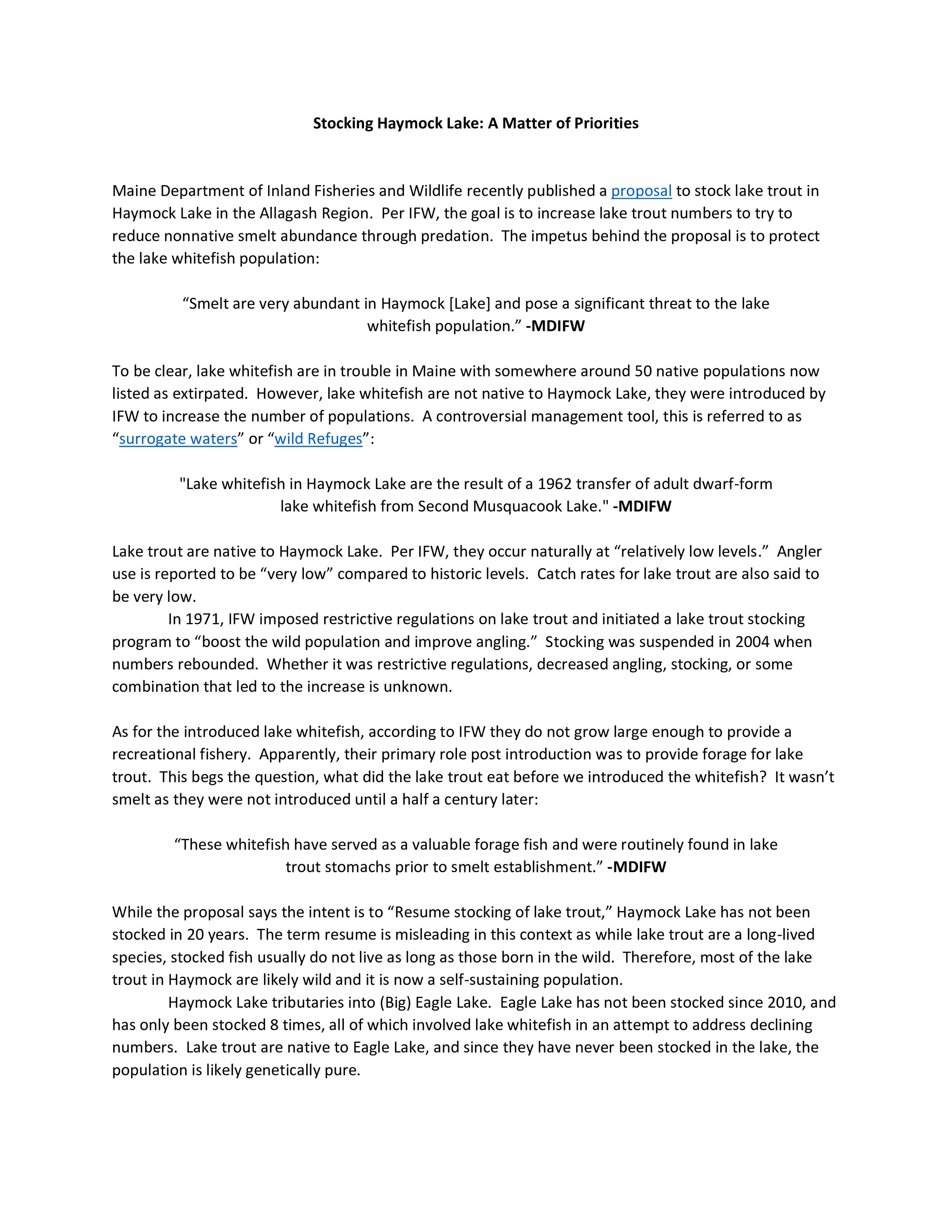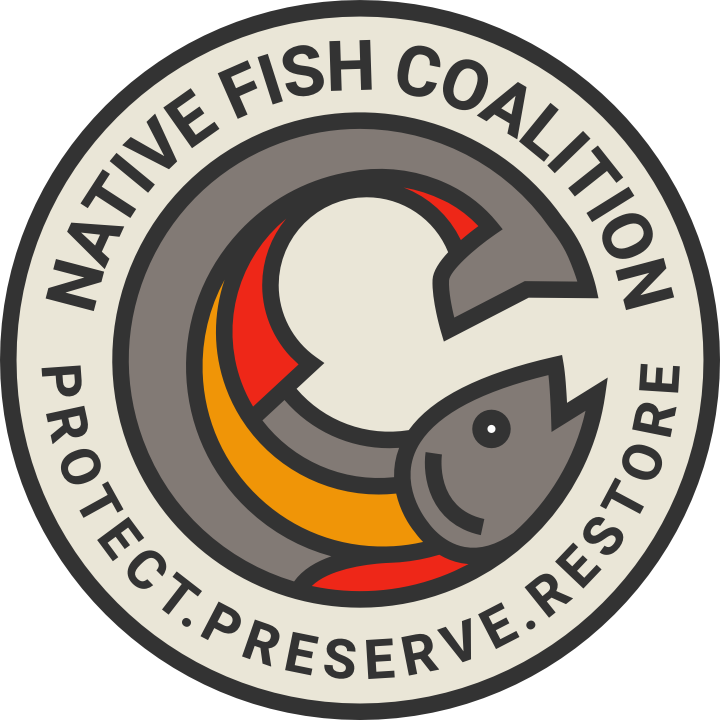NFC ED Bob Mallard Challenges Stocking Proposal in Maine...
Nonnative smelt have altered the aquatic landscape in Maine
“Lake whitefish are in trouble because we moved smelt around. Then we started moving lake whitefish around to try to save them. Now we want to move lake trout around to help the whitefish we moved around that are in trouble because we moved smelt around...”
NFC Executive Director Bob Mallard addresses a proposal to stock lake trout in Haymock Lake in Maine to try to reduce nonnative smelt that are negatively impacting introduced lake whitefish.
Haymock Lake has not been stocked in 20 years. It is just 5 years away from being designated a State Heritage Fish water. The existing lake trout population is self-sustaining.
Haymock Lake tributaries into Eagle Lake in the Allagash region. Lake trout are native to Eagle Lake and they have never been stocked over with hatchery lake trout. Therefore they are likely genetically pure. Per Maine Department of Inland Fisheries and Wildlife, while they downplay it, some stocked lake trout from Haymock Lake would likely leak into Eagle Lake.
“If stocked at very high densities, some lake trout could be expected to migrate down the outlet and end up in Big Eagle Lake. The potential for a few extra lake trout in Big Eagle is not expected to impact the lake’s sport fishery or fish populations...”
This is another example of where MDIFW has their priorities wrong. When the choice is between protecting wild native fish or propping up nonnative fish through stocking, the answer should be easy - protect wild native fish. Unfortunately, that is not what we are doing at Haymock Lake…
“Most importantly, removing from consideration a high quality wild native brook trout water that is just 5 years away from State Heritage Fish designation so we can stock lake trout over wild native lake trout to protect introduced whitefish flies in the face of what our top priority should be, the preservation of wild native fish.”




